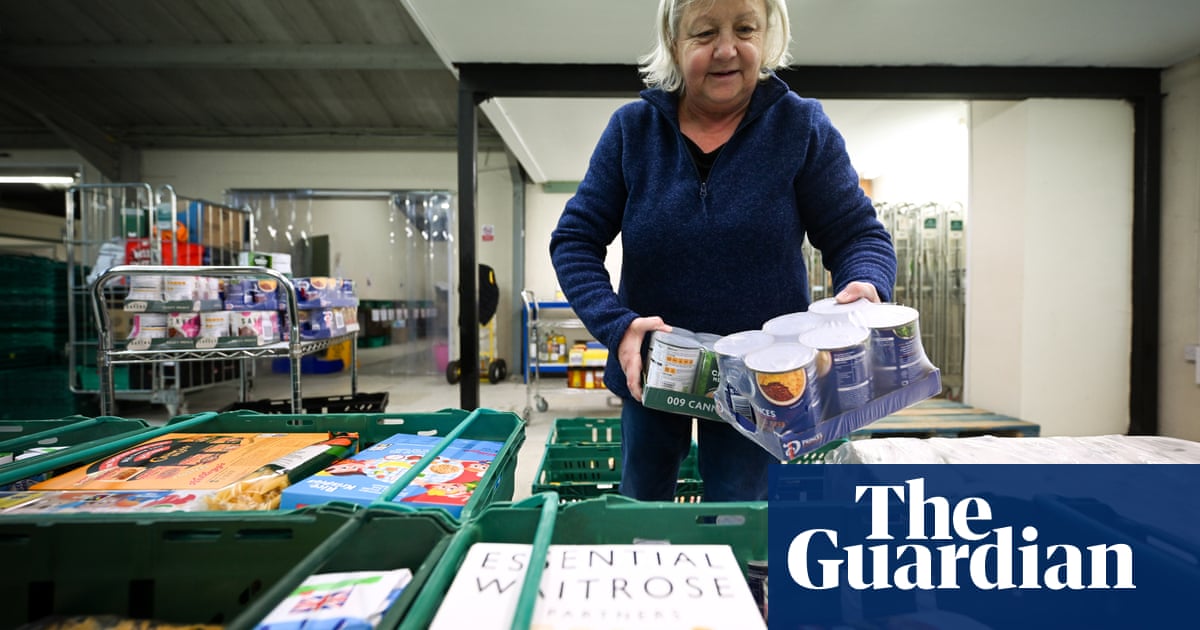
Poverty campaigners have called for an emergency cash support scheme to help struggling low-income households after UK food bank charities reported that the first full month of coronavirus lockdown was their “busiest ever”.
The charities said their experience of record food bank use in April, following a huge surge in food aid in March, showed it was clear that current social security safety net measures were not enough to prevent poorer families being swept into destitution.
The Trussell Trust, the UK’s biggest food bank network, said it gave out 89% more food parcels in April, compared to the same month last year, while the Independent Food Aid Network (Ifan) recorded a 175% increase over the same period.
The number of families with children who received food parcels almost doubled in April compared to the the same period last year, the Trussell Trust said, a rise it described as unprecedented.
Ifan said half of the 132 food banks it surveyed had expanded operations to cope with rising demand in April, taking on more volunteers and opening more venues. A third had increased the size of individual food parcels to support people for longer.
Trussell Trust chief executive Emma Revie said: “People need to be able to put food on their table. The government must put urgent support in place to ensure people already struggling to keep their heads above water and stay afloat.”
Although government emergency measures such as the job retention scheme had helped, many families were already falling through the gaps and more support would be needed when those measures wind down over the coming months, charities said.
They called for local authorities to be funded to re-provide emergency cash grants to families through local welfare schemes. Many of these schemes have been drastically reduced or wound up in recent years.
This should be implemented alongside a rise in benefit rates for families with children, a suspension of benefit deductions on advance loans given out to cover claimants through the five-week wait for universal credit, and a lifting of the benefit cap.
Child Poverty Action Group chief executive Alison Garnham said: “No parent wants to depend on charity to feed their own child but it is clear that food banks are becoming the only option for a growing number of families whose finances have all but collapsed because of Covid-19. Struggle is turning to real hardship.”
Ifan coordinator Sabine Goodwin said: “Our food bank figures paint a grim picture of what is unfolding across the UK and the numbers of people having to resort to emergency food parcels to survive. But the solution to the escalating food insecurity crisis has never been the provision of charitable food aid. Everyone needs to be able to afford to buy food and the bare essentials.”
A government spokesperson said: “We understand that this is a difficult time for people on low incomes and we’ve taken significant action to support those affected by coronavirus, including through income protection schemes, mortgage holidays and additional support for renters.
“For those most in need we’ve injected more than £6.5bn into the welfare system, which includes an increase to universal credit of up to £1,040 a year. No one has to wait five weeks for money as urgent payments are available, while some people may be eligible for a nine-month grace period where their income is not capped.”












